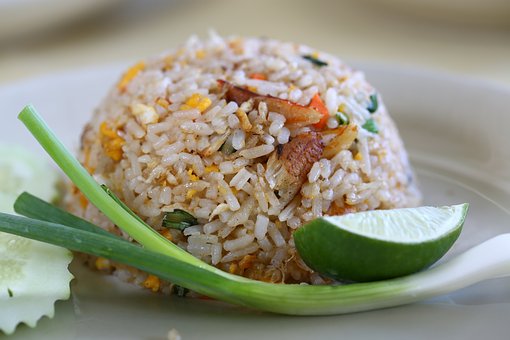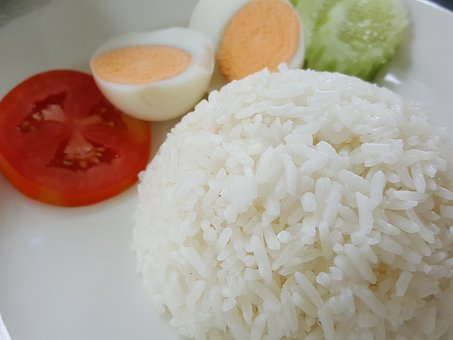Rice is a staple food for more than half of the world’s population, making it one of the most consumed grains on the planet. But what is the nutritional value of rice, and is it healthy for you? In this article, we will explore the various types of rice, their nutritional content, and their potential health benefits and drawbacks.
There are many different types of rice, including white rice, brown rice, jasmine rice, basmati rice, and wild rice, to name a few. Each type of rice has a slightly different nutritional profile, but they all contain similar amounts of carbohydrates, protein, and small amounts of fat.
White rice, which is the most commonly consumed type of rice, is milled and polished to remove the outer bran and germ layers, leaving only the innermost part of the grain, known as the endosperm. This process removes many of the nutrients and fiber found in the bran and germ, resulting in a grain that is less nutritious than its brown counterpart.
One cup of cooked white rice contains about 205 calories, 45 grams of carbohydrates, 4 grams of protein, and less than 1 gram of fat. It is also a good source of B vitamins, including folate, thiamin, and niacin, as well as minerals such as iron and magnesium. However, white rice is not a good source of fiber, as most of the fiber is removed during the milling process.
On the other hand, brown rice is the whole grain version of rice, with the bran and germ layers left intact. This results in a grain that is more nutritious than white rice, as it contains more fiber, vitamins, and minerals. One cup of cooked brown rice contains about 216 calories, 44 grams of carbohydrates, 5 grams of protein, and 2 grams of fat. It is also a good source of B vitamins, iron, magnesium, and zinc, as well as several important antioxidants.
Jasmine rice is a long-grain rice that is native to Thailand. It has a soft, fluffy texture and a slightly sweet, nutty flavor. One cup of cooked jasmine rice contains about 190 calories, 43 grams of carbohydrates, 4 grams of protein, and less than 1 gram of fat. It is also a good source of B vitamins and minerals such as iron and magnesium.
Basmati rice is another type of long-grain rice that is grown in India and Pakistan. It has a fragrant aroma and a delicate, fluffy texture. One cup of cooked basmati rice contains about 190 calories, 44 grams of carbohydrates, 5 grams of protein, and less than 1 gram of fat. It is also a good source of B vitamins and minerals such as iron and magnesium.
Wild rice is not actually a type of rice, but rather a type of grass seed that is native to North America. It has a chewy texture and a nutty, earthy flavor. One cup of cooked wild rice contains about 166 calories, 35 grams of carbohydrates, 6 grams of protein, and 1 gram of fat. It is also a good source of B vitamins and minerals such as iron, magnesium, and zinc, as well as several important antioxidants.
So, is rice healthy for you? The answer is not so straightforward, as it depends on the type of rice you are consuming and how it is prepared. In general, brown rice is considered to be more nutritious than white rice, as it contains more fiber, vitamins, and minerals. However, both types of rice can be part of a healthy diet when consumed in moderation and paired with a variety of other plant-based foods.
One potential concern with rice is its high carbohydrate content.

 Home
Home Health
Health Diet & Nutrition
Diet & Nutrition Living Well
Living Well More
More












